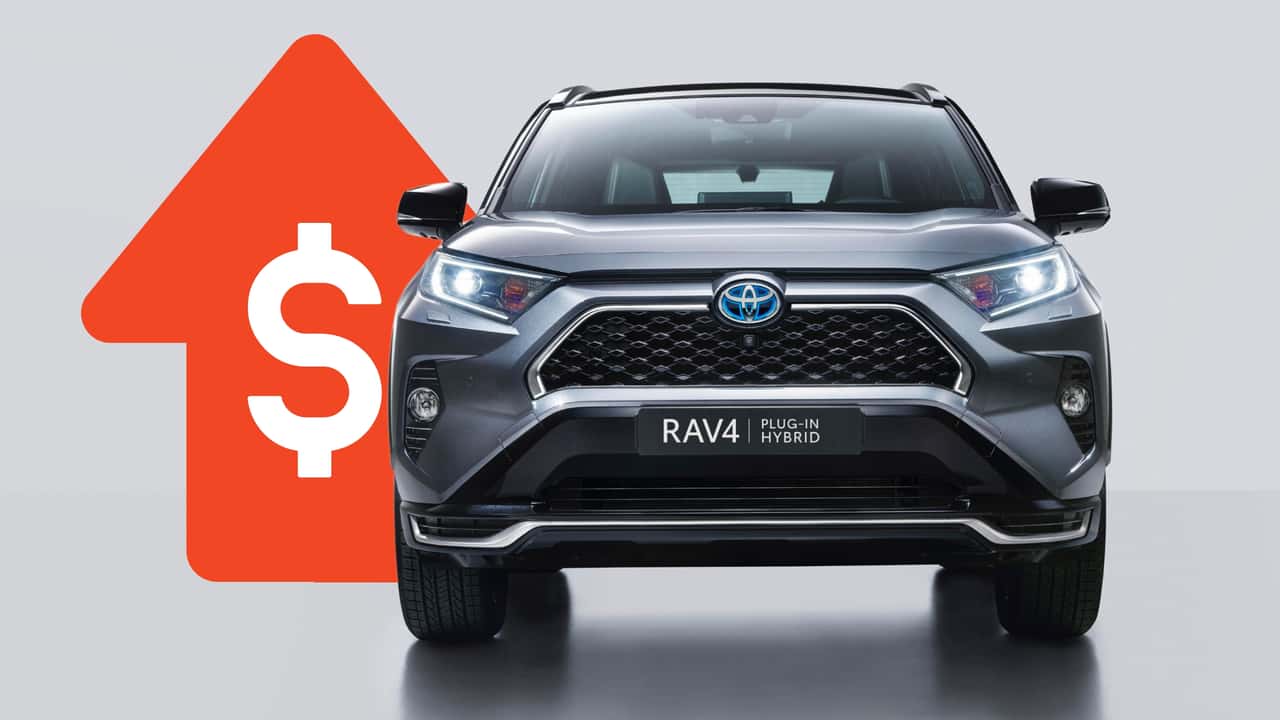
Trump’s 25 percent tariff on imported vehicles will become a reality on April 3. And on the surface, at least, the numbers don’t look promising for automakers or consumers.
Bernstein Institutional Services LLC, an investment research firm, published a report on Thursday detailing the monetary impacts this new tariff will have on prices, margins, and volume. Here’s what you need to know.
The Numbers
The average new car in America costs $49,740 as of January, according to Kelley Blue Book. Bernstein predicts prices will increase 7 percent, or around $3,600, as a result of the tariffs. That would push the average new car price to a record high.

Bernstein predicts tariffs will cost automakers $6,700 per vehicle, or $110 billion annually, “forcing OEMs to choose between price hikes, cost absorption, or margin compression,” according to the report. Even if the cost of tariffs is passed onto buyers and supply chains are adjusted to compensate, companies like Ford and GM can expect a 30-percent decline in earnings before interest and taxes (EBIT) this year.
Stellantis, meanwhile, could fare a bit better on the tariff front thanks to the high concentration of US-made parts in its Mexico-built models, according to Bernstein. Tesla is the biggest winner, though, thanks to its US plants and high market share. Smaller EV makers like Rivian and Polestar will be hit hard, mostly thanks to their foreign-heavy supply chains.
For a full rundown of which manufacturers will fare better or worse on tariffs, head over to our dedicated article.
So What Happens Now?
The tariffs go into effect on April 3. To prepare, automakers have stockpiled inventory. There are 2.7 million vehicles currently sitting on dealer lots, or a 54-day supply, according to Bernstein. Springtime is when car buying picks up for the year, which means this inventory could only last until the first week of May.

Photo by: Porsche

After that is when Bernstein expects the costs of tariffs to begin hurting bottom lines for automakers. US-built vehicles could have temporary relief thanks to exceptions for manufacturers under the United States-Mexico-Canada Agreement (USMCA), but that’ll only last for a month before those manufacturers are fully exposed to tariff downsides.
Bernstein predicts it could take 12-36 months for manufacturers to reorganize their supply chains and assembly facilities. For some context, it took automakers 18-24 months to bounce back from the semiconductor shortage caused by Covid in 2020-2021. That means billions lost in revenue.
How Will Automakers Respond?
Carmakers are being presented with a choice, according to Bernstein: Hike prices, or keep volume. If automakers decide to pass the full $6,700 average cost onto the buyer, fewer people will buy the car. If you decide to eat the cost of the tariffs, then you won’t lose any customers.
Passing on the full cost of the tariffs will cost automakers 10 percent in volume on average, predicts Bernstein. But the research firm says big, expensive trucks and luxury vehicles will be easier to sell with higher prices, since the original sticker price was already high.

Photo by: Toyota
Compact SUVs and small cars—two of the most popular segments in the US—will be the hardest-hit, according to Bernstein, thanks to thin margins and competitive pricing. The research firm says cars like the RAV4, Crosstrek, Corolla, and Civic would take 8 to 11 percent volume hits.
More on Tariffs
Thanks, Tariffs: JDM Imports Are About to Get Way More Expensive
Hyundai’s US Investments Mean It’s Not Worried About Tariffs
